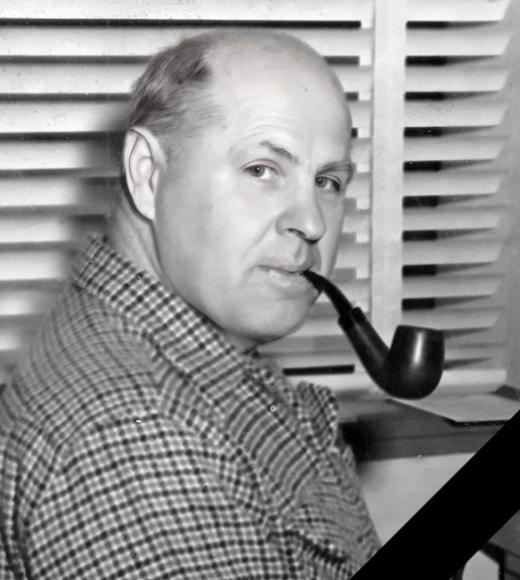
Position Title
In Memoriam
Distinguished Professor Emeritus
1903-1993
GORDIE C. “JACK” HANNA
Birth: July 1, 1903
Death: December 23, 1993, Yolo, California, USA
Education:
- B.S., Agronomy, University of California, Davis, 1928
Employment:
- 1929–1932: Field Assistant, UC Truck Crops, Ryer Island Field Station
- 1932–1933: Research Assistant, UC Truck Crops, Ryer Island Field Station
- 1933–1942: Associate in Experiment Station, UC Davis
- 1942–1944: Lecturer and Associate in Experiment Station, UC Davis
- 1944–1945: Lecturer and Assistant Olericulturist, UC Davis
- 1945–1951: Associate Olericulturist, UC Davis
- 1951–1970: Olericulturist, UC Davis
- 1970: Retired from UC Davis and joined the staff of Petoseed, Inc.
Honors, Awards, and Professional Societies:
- John Scott Award (1976), awarded jointly with Coby Lorenzen for their contributions to mechanical tomato harvesting
- Recognized posthumously through the 2005 historic landmark designation of the UC-Blackwelder Tomato Harvester by the American Society of Agricultural and Biological Engineers
Research Contributions and Impact
Jack Hanna played a transformative role in the evolution of modern agriculture through his plant breeding work, particularly in tomatoes, asparagus, and sweet potatoes. Beginning in the 1940s, he led efforts at UC Davis to breed a firmer, more durable tomato suitable for mechanical harvesting. His breakthrough came with the development of variety VF145, known as the “square tomato,” which could withstand the rigors of mechanical harvesters without damage.
Hanna’s work directly enabled the commercialization of mechanical tomato harvesters. His partnership with UC Davis agricultural engineer Coby Lorenzen and the eventual collaboration with Blackwelder Manufacturing ushered in a new era of tomato production. Within just a few years of the harvester’s introduction, over 85% of California’s tomato acreage had transitioned to the new system, fundamentally reshaping the U.S. processing tomato industry.
In addition to tomatoes, Hanna bred most of California’s disease-resistant asparagus varieties and developed sweet potato cultivars used internationally. His research also included adoption studies on cabbage and broccoli.
Publications and Scholarly Leadership
While specific publications are not listed in the available records, Hanna’s contributions are embedded in landmark technologies and widely adopted crop cultivars that have had a lasting influence in both scholarly and industrial domains.
Teaching and Mentorship
As a lecturer and research leader at UC Davis for more than three decades, Hanna trained multiple generations of plant breeders, agronomists, and vegetable crop scientists. His practical approach to breeding and field experimentation shaped the university’s hands-on teaching ethos.
Collaboration and Community
Hanna’s most significant collaboration was his long-term partnership with engineer Coby Lorenzen, which exemplified cross-disciplinary innovation between plant science and agricultural engineering. Their joint efforts with industry partners and UC Cooperative Extension not only revolutionized tomato production but also laid the foundation for future collaborations between UC research and California agriculture.
Legacy
Jack Hanna’s work continues to shape global agriculture. The mechanical tomato harvester and VF145 cultivar he co-developed saved California’s tomato industry at a critical time, and his vision for machine-compatible crops prefigured broader shifts in industrial agriculture. His innovations prompted not only technological change but also social and policy responses—including the creation of the UC Small Farm Center and the Sustainable Agriculture Research and Education Program (SAREP). Hanna’s enduring legacy is felt in every bottle of ketchup, can of tomato paste, and acre of machine-harvested processing tomato planted today.
References
For additional tributes, interviews, and biographies, see the following resources:
